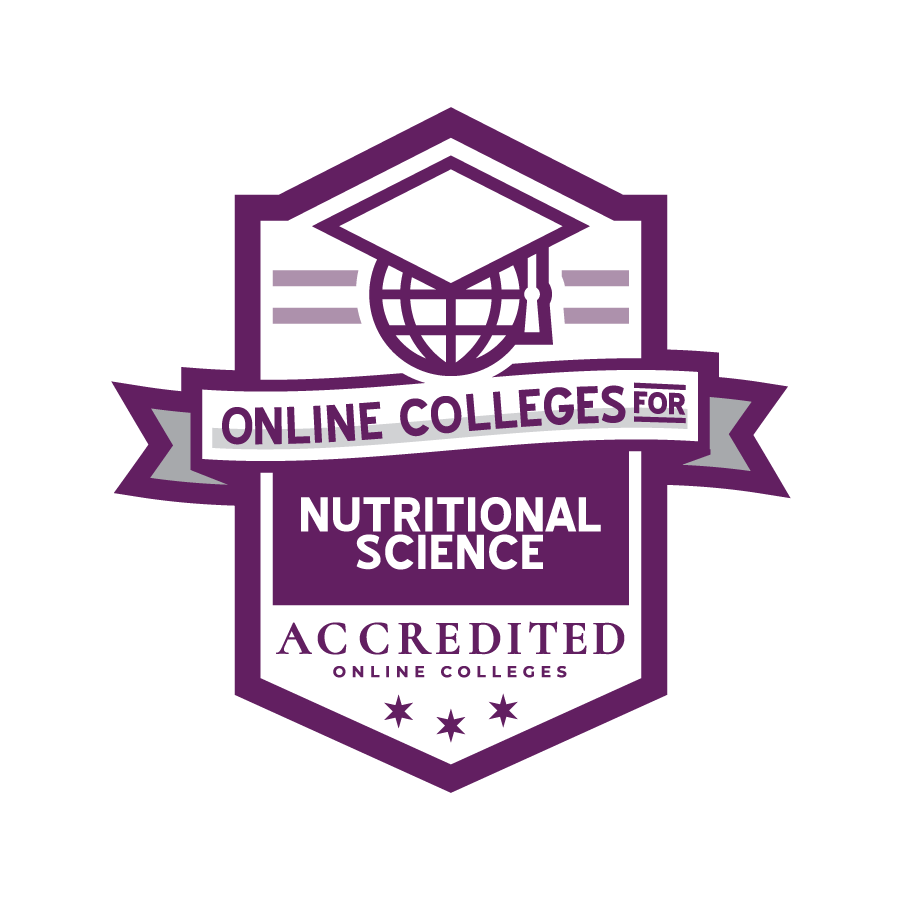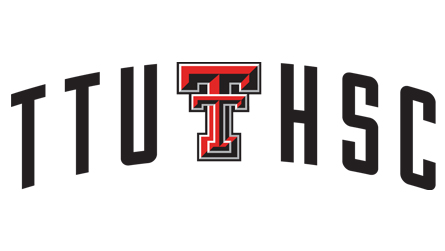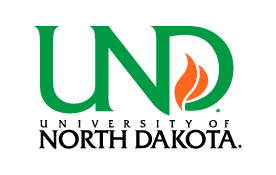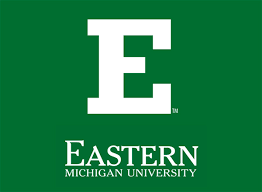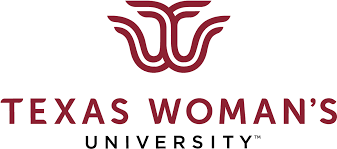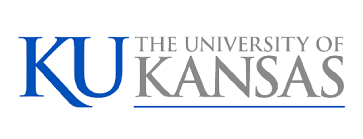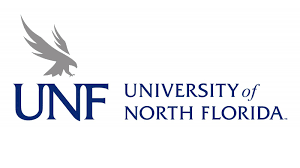Introduction
Looking for a master’s degree in nutritional science? These accredited online colleges for nutrition offer some of the top-ranking programs in the nation.
The Commission on Dietetic Registration (CDR) has raised the bar for entry into the professions of nutrition and dietetics. From 2024, you’ll require a master’s degree to be eligible to gain status as a Registered Dietitian or Registered Nutritionist. You will not be able to enter a program just out of high school or with just a GED. Thankfully, there are many accredited online colleges in nutritional science that offer top-ranking programs or degrees that are the first of their kind in the nation. If you are interested in wellness and food sciences and becoming a nutrition professional, you may be interested in nutrition science degrees online. Check out this list of the 30 best nutrition colleges to make sure that you’re ready to gain your credential when you graduate. These programs are accredited and will meet licensure or certification requirements.
See Also: 30 Accredited Pharmacy Schools Online
What will you learn with an online nutritional science degree?
Most master’s degrees in nutritional science vary from 30-40 credit hours. You’ll normally spend anywhere between 1 and 3 years studying depending on your course load and courses chosen, plus the specialization you take. Core classes cover topics like:
- anatomy and physiology
- food and nutrition
- community nutrition
- clinical nutrition
- macronutrients
- food services system management
- nutrition counseling
- relationship between nutrients and the body
See Also: Accredited Online Colleges for Registered Dieticians
What are the admission requirements for best nutrition science colleges?
The admission requirements for a degree in nutritional science tend to be fairly uniform across the board. In the majority of cases, you will need a bachelor’s degree in a related field to be eligible to apply. Additionally, most institutions require a minimum undergraduate GPA of 3.0 to be considered. Some drop the bar to 2.75.
Some institutions will only accept those who already have the Registered Dietitian (RDN) credential. Others offer the opportunity to become eligible for this credential after graduation. There are also institutions whose program will not lead to eligibility for the RDN. Be sure to check what you’re getting out of an online nutrition degree before making any applications.
What are the Best Nutritional Science Degrees?
Accredited Online College uses the most recent data from the Department of Education’s National Center for Education Statistics. Each program is scored individually. It’s then compared to all other universities offering that degree to determine the final score you see by each ranking. Accredited Online College considers the affordability, student-to-faculty ratio, and the number of programs offered on-campus and online. To learn more, visit our methodology page. Get set up for the career path you desire!
Check out these best schools for nutritional science.
See Also: Cheap Accredited Online Colleges
#1. Texas Tech University
Texas Tech’s master’s degree in nutrition and dietetics is open to applications from any registered dietitian or nutritionist who holds a bachelor’s degree. It’s been ranked a best online master’s in nutritional Sciences program by collegechoice.com. It’s a fully online degree program that is approved by the Texas Higher Education Coordinating Board (THECB).
The curriculum is marketed as a ‘practice-based’ or ‘work-centered’ program. This means that you’ll gain the needed skills and experience to apply directly to a range of practice areas. These include areas such as:
- diabetes
- eating disorders
- geriatrics
- maternal health
- nutrition support
- pediatrics
Students from out of state don’t pay higher tuition rates at Texas Tech Online. If you reside outside the State of Texas, you’ll be charged a rate that’s comparable to in-state students if you’re solely enrolled in online courses.
This program is accredited by the Accreditation Council for Education in Nutrition and Dietetics (ACEND). Find information here.
See Also: 20 Accredited Online Colleges That Offer Laptops
#2. East Carolina University
In addition to a nutrition with science program and a minor in nutrition at the undergraduate level, East Carolina University (ECU) has a master’s degree in nutrition that can be taken online. It is one of the top online schools for nutrition. You’ll have the choice of taking either a thesis or non-thesis program, with the latter requiring the completion of a research project. You’ll have the support of a graduate advisor and member of the nutrition faculty to help you.
Students on both tracks will follow the same core courses including:
- Human Nutrition in Physiology and Metabolism
- Biostatistics for Health Professionals
- Methods in Nutritional Research
For admission into either program, you’ll need a minimum cumulative undergraduate GPA of 3.0 on a 4.0 scale.
At ECU online, tuition costs around $289.11 for graduate-level programs, providing you’re a resident of the state. For out-of-state students, this rate rises to around $1,019.61. Students eligible for military tuition rates can check out the website for more information on costs and eligibility. In addition to tuition, some fees also apply.
#3. North Carolina State University at Raleigh
North Carolina State University’s Master of Nutrition is a non-thesis program that can be used as a stepping stone into both human and animal nutrition careers. Comprising 36 credit hours of coursework, most courses can be completed online at NCSU. However, there is a choice of 6 credit hours’ worth of practicum, internship, or project work that might require site or campus visits.
Prospective students will require a bachelor’s degree within a science discipline, in addition to coursework in organic chemistry and biology. Your cumulative GPA from undergraduate coursework should also be at least 3.0. Upon successful admission into the this NCSU program, you’ll choose from either a human nutrition or feed science area of emphasis.
Students enrolled in this online nutritional science degree are charged the standard graduate distance education rate for tuition. For residents of North Carolina, this is approximately $533.07 per credit hour, which includes required fees of around $27.79. For non-residents, the tuition rate rises to around $1,532.35 per credit hour.
#4. Kansas State University
Through K-State Online, Kansas State University’s distance learning campus, you can complete a master’s degree in nutrition, dietetics, and sensory sciences. With a highly customizable curriculum, you can choose courses that relate to your education, background, and career goals. Available concentrations include:
- sensory analysis
- nutrition and exercise sciences
- consumer behavior
You’ll complete 30 credit hours in this program, which is conducted entirely online. For admission, you’ll need to meet the university’s general graduate requirements, though applicants with a science background may have a more competitive edge. You’ll also need:
- three letters of recommendation
- transcripts
- application form that details your skills and interests
Tuition for this master’s degree is charged at a rate of around $515.50 per credit hour. This rate also includes any fees due to the College of Health and Human Sciences. However, your actual costs could change depending on whether you transfer any prior credits and the courses that you choose.
K-State Online offers an online bachelor of science in nutrition and health.
#5. University of Georgia
The University of Georgia is accredited by the Southern Association of Colleges and Schools Commission on Colleges (SACSCOC). It has one of the best nutrition science programs. The institution offers a Master of Science in Foods and Nutrition – Community Nutrition. The emphasis of this program is on community-focused roles, and graduates with experience in school nutrition can become eligible for certification as Georgia School Nutrition Directors.
You’ll complete at least 30 semester hours’ worth of coursework in addition to a capstone course at the end of the program. Admissions criteria include the need for a bachelor’s degree from an accredited college or university, with a minimum cumulative GPA of at least 3.0 on a 4.0 scale.
The good news is that tuition rates are the same for both in-state and out-of-state students. For this program, the estimated costs are around $21,855, which includes tuition of around $18,870 for the duration of the program. More information on tuition and fees can be found on the website.
#6. Oklahoma State University
Oklahoma State University (OSU) Online offers one of the top nutrition science online degrees. They offer a master of science in nutritional sciences with an option in Dietetics. The curriculum has been carefully designed for credentialed dietitians who are actively practicing and eligible for the status of Registered Dietitian. With the upcoming change to academic requirements for this post, this degree could get you prepared in advance.
Comprising a total of 36 credit hours, the program is offered entirely online. Your courses are semester-based and can be followed at your own pace, with most students finishing within three years. You’ll also have some degree of control around your course load, with the choice to specialize in certain areas of dietetics, including:
- financial management
- nutrition for exercise and sport
- dietetic entrepreneurship
Whether you’re an Oklahoma resident or an out-of-state student, you’ll pay the same rate of tuition. The program charges around $590 per credit hour, with the estimated total cost at around $21,240. This doesn’t include the cost of your textbooks and course materials. More information on scholarships from the College of Education and Human Sciences can be found on the website.
#7. University of Utah
The University of Utah offers an M.S. (Online) with Nutrition Emphasis through the College of Health. The program is suitable for Registered Dietitians, though students with an undergraduate degree in a relevant area are also welcome to apply, provided they do not intend on becoming a registered dietitian.
It’s a highly flexible master’s degree comprising 27 hours of core courses and 12 hours of electives. The curriculum for the online nutritional science degree covers knowledge areas such as:
- nutritional biochemistry
- research methodology
- both macro and micronutrient metabolism
It’s a program that was recently ranked among a list of the ‘Best Online Master’s in Nutrition’ by Guide to Online Schools.
The tuition rates at The University of Utah can vary widely depending on a number of factors. For the most accurate estimates, check out the general graduate rates for both non-residents and state residents.
#8. University of Wisconsin, Madison
Under the College of Agricultural & Life Sciences, students can enroll in an online master’s degree in clinical nutrition at The University of Wisconsin, Madison. For busy working professionals who need flexibility, this program could be ideal. Unlike some online programs, there are no campus visits required at all.
Much of the learning on this program is project-based and utilizes real case studies from UW Hospital. As a full-time student, you could finish the program as quickly as four semesters. Part-time options are also available. What’s more, if you already have a certificate in clinical nutrition from this institution, then you could be finished in as few as two semesters.
Comprising 30 graduate credits, tuition for this program costs around $800 per credit. Unlike some institutions, the University of Wisconsin, Madison does not charge different tuition rates for state residents and non-residents, keeping the cost of your master’s degree down. Visit the website for more information on financial aid.
#9. University of Southern Mississippi
Online at Southern Miss is the distance learning campus for The University of Southern Mississippi. Among the graduate-level programs offered is the Nutrition and Food Systems MS. After successful graduation from this online nutritional science degree, you’ll be prepared to advance your career in:
- dietetics
- child nutrition
- community nutrition
The program comprises around 33 to 36 credit hours depending on your course choices, and most graduates graduate between 1 and 3 years after beginning the program. Courses include studies in:
- food systems management
- global nutrition and health
- management of nutritional services
Tuition is affordable, with out-of-state students paying the same distance learning tuition as state residents. You’ll pay around $512.12 for each credit hour. Based on a course load of 9 credit hours per semester, you can expect to pay tuition of around $4,782.00 each semester as a full-time student.
#10. University of North Dakota
At the University of North Dakota (UND), you can enroll in a master’s degree program in nutrition at one of the best nutrition colleges. This is a fully online degree that takes an average of around 2 years to complete. Comprising 30 credit hours, you’ll have the option of three start dates annually, though bear in mind that one campus visit is required during the course of the program.
There are three specialization options to choose from, though only two of these are offered via distance learning:
- Nutrition Education and Counseling
- Nutrition Science
For admission, you’ll need to have an existing bachelor’s degree, though this program does not require the GRE.
For online programs at UND, tuition is charged on a per-credit basis at the same rate for state residents and out-of-state students. What’s more, online student fees are capped at 12 credits per semester. For more information on tuition rates, check out the tuition calculator or find more information on the website.
#11. University of Nebraska—Lincoln
The University of Nebraska, Lincoln’s internationally recognized Department of Nutrition and Health Science,s offers a master’s degree in the same name. Within the program, there are six broad specializations to choose from, which include:
- Biochemical and Molecular Nutrition
- Community Nutrition & Health Promotion
- Dietetics
- Hospitality Management
- Nutrition and Exercise
- Professional Studies in Dietetics
The Dietetics specialization is offered as an entirely online program. You may be interested in becoming a dietetic technician. Comprising 30 to 36 credit hours depending on course choices, you’ll need to have a bachelor’s degree in order to be eligible. Your application will also require a set of transcripts, a professional resume, and three letters of recommendation. You’ll also need to write a personal statement in great detail.
Base graduate tuition for state residents costs around $357.00 per credit hour for online students. For non-residents, this rises to around $676.00 per credit hour. While non-residents pay more in tuition, this is still an affordable rate compared to the much-higher rates that are often charged for out-of-state students at some institutions.
#12. Eastern Michigan University
Eastern Michigan University offers four programs in dietetics, with an additional master’s degree in human nutrition. Their dietetics program is nationally ranked, and EMU was the first university in the state to be recognized as an age-friendly university. Students have the option of either studying online or attending a traditional campus program.
However, the dietetics program is not entirely online. This degree requires campus-based study too. Conversely, the human nutrition master’s degree can be studied entirely through distance learning. Just bear in mind that, unlike the dietetics program, it will not lead to the Registered Dietitian Nutrition (RDN) credential.
What’s more, as a distance learner enrolled in this program, you’ll pay the same in-state tuition rates as state residents. Tuition information for online programs can be found on this page and used as a rough guide. Unfortunately, EMU does not have a dedicated section for nutrition tuition rates, but typical online graduates pay around $10,260 annually for tuition and fees.
#13. University of Illinois at Urbana-Champaign
At the University of Illinois at Urbana-Champaign, you can enroll in an MS in Food Science & Human Nutrition. Beyond the general food science and human nutrition courses, you’ll also get the chance to conduct research in one of many areas of specialization. These include:
- sensory sciences
- food chemistry
- food safety and security
- food microstructures
- clinical nutrition
While traditional, campus-based graduates on this program choose between Food Science and Human Nutrition concentrations, the online emphasis is on both, so you’re not required to select a concentration. Admissions require a bachelor’s degree in a field relating to:
- biological
- physical
- agricultural
- engineering sciences
This university’s online tuition rates vary depending on your program. For the master’s degree in food science and nutrition, you’ll complete a total of 11 courses, 32 credit hours, paying around $712 per credit hour. The total cost of the program comes to around $22,784.
#14. Stony Brook University
At Stony Brook University, the Department of Family, Population & Preventive Medicine offers an M.S. in Nutrition. You’ll learn how to prevent and manage disease in the population, in addition to recommending healthy food and nutrition plans. In total, you’ll complete 36 credits and have the choice of two concentrations.
You can choose between a concentration in Advanced Nutrition Therapy & Critical Care or Integrative Nutrition Therapy. However, for admission into the former program, you will need to submit a DPD Verification statement that evidences the completion of a biochemistry course to at least a ‘B’ grade.
Since Fall 2020, Stony Brook University has charged a non-resident online rate for students taking distance learning programs. Graduates pay around $565.00 per credit, making the full-time student rate approximately $6,785.00. This isn’t much more than the standard NYS resident rate of around $471.00 per credit hour.
#15. Texas Woman’s University
The master’s degree in nutrition at Texas Woman’s University can be completed in as little as one year. Comprising 30 credit hours, students have a choice of coursework-only or thesis options, and there’s the opportunity to complete the degree entirely online. What’s more, according to their website, the Denton and Houston campuses have a 100% pass rate for the national RDN exam.
If you choose the online-only option, then you’ll complete 12 credit hours of required core courses, in addition to 16 credit hours of additional major courses. You’ll also select nine additional courses and complete a capstone seminar in your final semester. Full course titles and subject areas can be found in the catalog.
There are a number of scholarship opportunities reserved solely for nutrition and food sciences students. Check out the website for more information on the nine different awards that could help reduce the cost of your degree. What’s more, students who receive a scholarship will only be charged the in-state tuition rate regardless of state residency.
#16. University of Alabama
At The University of Alabama, you can enroll in the Master of Science in Human Nutrition. Comprising 30 credit hours and offered online, it is designed to prepare you for doctoral study or advance your knowledge of dietetics for professional roles. It has been ranked within ‘Best Program’ listings by both GoGrad.org and TheBestSchools.org.
Several tracks are available, including:
- General Track
- Community Track
- Clinical Track
You’ll complete a capstone experience regardless of your choice of specialization. Bear in mind that if you don’t already have a bachelor’s degree or Registered Dietitian status, this program won’t make you eligible to sit for the National Registration Examination.
Distance learning at this institution attracts different tuition rates compared to traditional programs. The online tuition rate for undergraduate students is around $375 per credit hour, while graduate-level programs are charged at a rate of $420 per credit hour. More information on tuition rates can be found on the university website.
#17. Framingham State University
This institution offers a master of education program that has a concentration in nutrition education. The curriculum will help you understand how to:
- develop nutrition education curriculums
- design and interpret your own research on the subject
- select the appropriate technology to educate your audiences
Your curriculum will include mandatory core education requirements, including:
- 3 core courses
- 4 nutrition core courses
- 3 electives in your chosen specialization
You will also be expected to take a timed online examination, which will test your culminating experience. If your background doesn’t quite meet the admission requirements, additional courses may be required.
For online distance learning programs, Framingham State University charges on a per-course basis as opposed to credit hours. For example, undergraduates pay around $1,195.00 per course, while graduates pay $1,325.00 per course. This includes mandatory fees of around $441 per course. There are also additional discounts available for veterans and corporations.
#18. University of Kansas
This distance learning Dietetics and Nutrition master’s degree is offered through the Great Plains IDEA program, a collaborative group of eight universities offering the same degree. This means you’ll benefit from the knowledge and experience of multiple institutions. However, admittance is only available to credentialed Registered Dietitians or students who have already met the requirements to be eligible.
Up to 6 graduate-level credits can be transferred into the program to reduce its length, and your program duration will depend on your start date, the courses you choose, and your course load each semester. While it’s an online program, you will need to visit the campus if you choose the thesis option.
Since this nutrition science degree online is part of the Great Plains IDEA consortium, tuition rates are fixed for any student enrolled, regardless of their home institution. You’ll pay around $590.00 per credit hour, which includes mandatory university fees. For more information on financial aid and scholarships, check out the website.
University of Kansas is accredited by the Higher Learning Commission.
#19. University of Memphis
At the University of Memphis (UoM) Global, the distance learning campus of the University of Memphis, you can enroll in a Master of Science in Nutrition – Environmental Nutrition. This is a fully online program comprising 33 credit hours, which will teach you about the relationships between food, nutrition, and the environment.
In this program, you will study courses in areas such as:
- food sustainability
- food justice
- traditional food practices
You will also be expected to complete an applied project, in addition to an internship. Some travel to other sites will be required.
Tuition rates at the University of Memphis depend on residency, though this isn’t true for online students. Traditional, campus-based students pay $597 per credit hour as state residents, while non-residents pay around $789 per credit hour. However, as a distance learner, you’ll be charged the same rate as a state resident for your online courses ($597).
#20. University of North Florida
The University of North Florida (UNF) offers a master’s degree in nutrition and dietetics through distance learning education. It’s suited to students who want to advance their knowledge in the areas of clinical nutrition or community nutrition. You’ll require a bachelor’s degree with a major focus on food and nutrition, human nutrition, or food management to apply.
The choice of concentrations in this nutritional science program include:
- Dietetic Professional Studies
- Global Health
- Healthcare Informatics
- Nutritional Sciences
The last option includes a thesis requirement, which would mean traveling to the campus. Your curriculum’s courses will depend on your choice, but you’ll cover topics such as:
- Public Health Nutrition
- Clinical Nutrition
- Nutrition Education/Counseling
Typical tuition for a graduate program at UNF is around $493.53 per credit hour for Florida residents and $1,044.27 for non-residents. However, for online classes, there is an additional distance learning fee of $30 per credit hour. More information on tuition rates and mandatory fees can be found on the website.
#21. Central Michigan University
Distance learning programs at Central Michigan University are taught through the Global Campus. This includes the MS in Nutrition and Dietetics, which is a 31-37 credit hour master’s degree. It has been designed to give you advanced knowledge and training in critical areas in preparation for the new requirements coming into play from 2024.
For maximum flexibility, the university offers three potential tracks to choose from. You can choose to take:
- a thesis option
- an internship option
- a coursework-only option
The latter choice would probably be best-suited to students who cannot commit to traveling to campus or a clinical site.
There isn’t much difference in the tuition rates for undergraduates and graduates. Undergraduate tuition costs around $417 per credit hour, while graduate tuition for U.S. residents is around $430 per credit hour. This makes for approximately $12,900 annually based on a semester load of 15 credits full-time study.
#22. University of Southern California
USCOnline offers a master’s degree in nutrition, health span, and longevity. With 46 credits for successful graduation, you’ll study:
- 28 units of didactic coursework
- 6 units of research
- completion 12 units of supervised clinical work
This means that while the program is online, some site-based or campus study is required.
However, provided that you complete a minimum of 1,200 hours of supervised practice and finish all didactic coursework, you will be eligible to enter for the National Registration Examination under the Commission of Dietetics Registration (CDR). This will lead to the Registered Dietitian Nutritionist (RDN) credential.
Tuition for graduate-level programs varies, but you can expect to pay somewhere in the region of $14,137 as a resident of South Carolina and $30,160 as an out-of-state student. Around 70% of undergraduates receive financial aid at USC, totaling around $6,500.
#23. Auburn University
The Master of Science in Nutrition: Online Non-Thesis Option at Auburn University is accredited by the Alabama Commission of Higher Education. Comprising 33 credit hours, the program’s non-thesis option means that you can study entirely online without the need for campus visits. However, you will complete 5 credit hours of non-thesis research.
You can choose from a number of electives from this top online school for nutrition including:
- Nutrition Science
- Clinical Nutrition
- Sports Nutrition
- Community Nutrition
Most courses are delivered online or over webcasting, and all courses use asynchronous scheduling, meaning you can choose when you complete your courses. You’ll participate in online discussions and presentations with the other students in your cohort.
Students studying online at this institution pay around $533 per credit hour, which includes $83 per credit hour in fees. As a result, each course costs around $1,599, and the cost for the entire program comes to approximately $17,589. There’s an application fee and graduation fee due once for each new student.
#24. University of Massachusetts Amherst
This master’s degree in nutrition is the first entirely online and accredited program of its kind. Focusing on public health nutrition, it is accredited by the New England Association of Schools and Colleges (NEASC) and the Council on Education for Public Health (CEPH). It comprises 47 credits, and students can choose a full-time or part-time schedule.
There are no site visits required, and students do not need to attend campus during the program. For admission, you’ll need to have a bachelor’s degree with a cumulative GPA of at least 2.75 in a major area such as public health or biomedical sciences. You should also have a minimum of two years’ worth of work experience in a public health role.
All graduate students enrolled in this best school for nutrition pay the same rate of tuition and the same fees, regardless of your residency status and location. Tuition is charged at a rate of around $622.00 per credit, with a $52 semester registration fee and $507.00 graduate school entrance fee.
#25. Bowling Green State University
Bowling Green State University (BGSU) offers the Masters of Food & Nutrition degree program. It’s designed for students who already have a bachelor’s degree in the areas of:
- food
- nutrition
- public health
- other related disciplines
You should have a minimum cumulative GPA of 3.0 from your undergraduate studies in the areas of biochemistry, anatomy and physiology, and human nutrition.
The program comprises a total of 39-40 credit hours, which includes:
- 15 credit hours of food and nutrition core courses
- 9 credit hours of minor courses related to your career goals
- 9 credit hours of research methods and statistics
You will also take 6-7 credit hours of a culminating experience, which could include a thesis.
Graduate tuition for online programs at BGSU are charged at the same rate for all English programs. This is around $445.40 per credit hour in tuition, plus $11 per credit hour non-resident fees for out-of-state students. There’s also a $15.68 per credit hour general fee, $13 technology fee, and $3 career services fee. More information can be found on the website.
Bonus Program
Arizona State University (ASU)
Online MS in Nutritional Science-Dietetics
Frequently Asked Questions
What can I do with a degree in nutritional science?
The scope for graduates with a bachelor’s degree in nutritional science is fairly wide. You could find professional roles within:
- research hubs
- biotechnology and pharmaceutical companies
- fitness centers
- community nutrition agencies
- private practice
- non-profit organizations
The skills that you’ll learn in online nutrition programs will aid you in any of these roles, though picking a specialized track could help even further.
Students with the greatest ambitions should certainly consider a master’s degree, given that the requirements to become a Registered Dietitian or Registered Nutritionist will increase in 2024. A master’s degree will ensure that you meet the minimum academic requirements while also gaining advanced knowledge and training in many areas.
Often, graduates choose a different academic path after completion of a bachelor’s degree program. Some graduates have followed other paths, including:
- differing graduate programs
- medical school
- dental school
- education or training in a field such as osteopathy, pharmacy, physical therapy
How much do nutritionists make?
The Bureau of Labor Statistics collates useful information regularly regarding the expected salaries and career outlook for all professions. According to BLS data, dietitians and nutritionists earned a median annual salary of around $61.650 in 2021, which is around $29.64 per hour.
Typically, the highest earners were working in outpatient care centers and earning around $74,640, while the lowest earners were based in nursing and residential care facilities, earning around $60,840. Some graduates from master’s degrees with a concentration in nutrition education and leadership choose to pursue managerial roles for higher earning potential.
Similar occupations to the nutritionist and dietitian include health education specialists and community health workers. According to the BLS, these professionals have a slightly lower median salary range, earning around $48,140 annually. Meanwhile, Registered Nurses (RNs) make around $75,330, and Rehabilitation Counselors make around $37,530.
What’s the career outlook for nutritionists?
In addition to publishing information on earning potential, the BLS also looks at potential career growth within each industry and role. It’s good news for these two professions in particular, with a projected 8% increase in demand over the decade between 2019-2029. That’s an increase in around 5,900 new openings for qualified dietitians and nutritionists.
Many dietitians will pursue the Registered Dietitian Nutritionist (RDN) credential to further their careers and increase employability. While it’s not required for every employer and position, it can help give you a competitive edge when it comes to seeking promotions. This credential is administered by the Commission on Dietetic Registration.
Do nutritionists need insurance?
While nutritionists have the benefit of helping patients and feeling good about their impact, they do need to worry about claims of negligence like many other healthcare professionals. As a result, it’s often recommended that nutritionists have professional liability insurance. This helps you to cover the legal fees associated with such a claim being raised against you.
While you’d hope that the worst never happens, there are several reasons that a claim could be raised. This could include practicing outside of the scope of your academic education or experience, being careless in your duties, or failing to stay up to date on the latest developments in the industry.
How do nutritionists help?
Even when people believe they are healthy, there are always ways to improve. This is particularly true when it comes to diet and nutrition. Nutritionists can help people to choose the right foods and stay healthy by eating a good diet. This is more than just understanding what constitutes a ‘good’ or ‘bad’ food.
As part of a nutrition master’s degree, you’ll learn advanced techniques relating to meal planning and macronutrients. Nutritionists will also help with tasks such as creating healthy grocery lists and recipes, in addition to creating tailored nutrition and diet plans. These consultations often take place over many sessions, allowing the nutritionist to monitor client progress.
If you’re interested in pursuing higher education, then you should check out The 20 Best Online Master’s in Nutrition and The 20 Best Master’s in Public Health Online!

